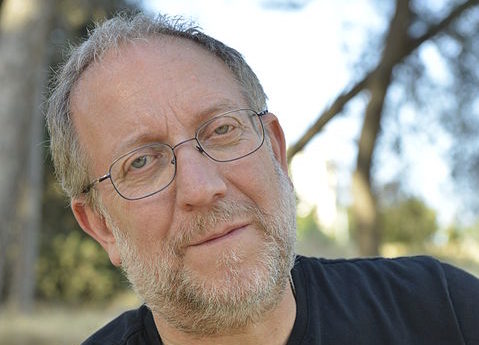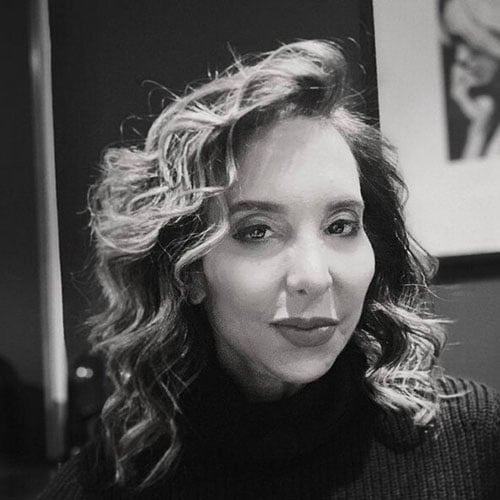 Photo from Wikimedia Commons.
Photo from Wikimedia Commons. “The American left is quite different from the Israeli left,” said American-born Israeli author Yossi Klein Halevi during a talk last week in New York City. “There is a sobriety, a maturity, to the mainstream Israeli left that you often don’t find here.”
Right on cue, a few days later, Women’s March organizers Linda Sarsour and Tamika Mallory were back in the news, this time over derogatory statements about the Anti-Defamation League’s involvement with anti-bias education at Starbucks; and Israeli-American actress Natalie Portman, the 2018 Genesis Prize winner, decided to boost her American-leftist status by announcing she would boycott the award ceremony in Israel.
All of which will no doubt give Halevi, who moved to Israel in 1982, more to talk about as he embarks on a tour for his new book, “Letters to My Palestinian Neighbor,” out in May.
While the American left celebrates victimhood, Halevi said, “Zionism is a profound rejection of victimhood.” Even the Israeli left finds victimhood “incomprehensible.”
“There’s no nobility to being a victim,” said Halevi, who as a fellow at the Shalom Hartman Institute has been active in coexistence efforts with American Muslims. Indeed, there isn’t. But somehow, following lockstep with Palestinian propaganda of the past 50 years, leftist (i.e., illiberal) propaganda has ennobled certain victims (notably not all victims) to the point of sainthood.
The maturing of the American left would entail an understanding that it’s been played.
As Portman, whose family moved to the U.S. when she was 3, essentially took the Hamas/BDS line in citing “recent events” when detailing her decision not to attend the prize ceremony, Halevi talked about how in Israel “the Jewish army is treated like a Jewish life force: our soldiers are our children and our security.” Meanwhile, members of the far-left group Breaking the Silence, which aims to monitor the Israel Defense Forces, are considered “pariahs in Israel — no one takes them seriously.” Perhaps most notably, “there’s never been a serious draft resistance in Israel. Our army is us.”
How does Halevi recommend maturing the diasporic left, especially young Americans? “We need to tell our truths, our story — who we are, what our experiences have been,” he said. And we need to do it in the “traditional form of one generation passing on our stories to another. We need to stop worrying about whether millennials will ‘get it.’ We need to stop indulging millennials.”
Indeed. What has this indulgence led to? Two-thirds of American millennials surveyed in a recent poll could not identify what Auschwitz was, and 22 percent said they had never heard of the Holocaust.
At the same time, millennials — and much of the left in general — believe that every aspect of our existence must be politicized. They have been taught that there is no separation between life and politics.
As Hen Mazzig, an Israeli writer and speaker, put it in an open letter to Portman in The Jerusalem Post: “It’s not about criticism, which we welcome here, it is about the way you do it, at this moment in time. I know you are used to a different type of political debate in the U.S., but we don’t need you to bring it here.”
The truth is, the American left — in its current descent into illiberalism — can learn a lot from the Israeli left.
“Palestinians threaten with their powerlessness,” Halevi said. It is the same powerlessness or victimhood that promotes anti-Semitic propagandists like Sarsour and Nation of Islam leader Louis Farrakhan to positions of influence on the U.S. left. It is the same victimhood that enables Muslim migrants in Europe to kill or maim Jews on a routine basis.
The maturing of the American left would entail an understanding that it’s been played. That ideas like “intersectionality” and “identity politics” have been manipulated for nefarious propagandistic purposes by individuals and groups whose sole mission is to single out and malign the Jewish state.
Ironically, just as Israel and Arab countries are becoming allied in a fight against Iran, the American left puts Sarsour on a panel about anti-Semitism; and Palestinian professors and activists rewrite Jewish history on a daily basis at American universities.
Creating an atmosphere where Israeli-born Americans like Portman feel a need to regurgitate the Hamas/BDS line in order to retain status on the left is as evil as it is brilliant. Can real liberals like Halevi and Mazzig help put the American left on a corrective course? Let’s hope so.
Karen Lehrman Bloch is an author and cultural critic.























 More news and opinions than at a Shabbat dinner, right in your inbox.
More news and opinions than at a Shabbat dinner, right in your inbox.